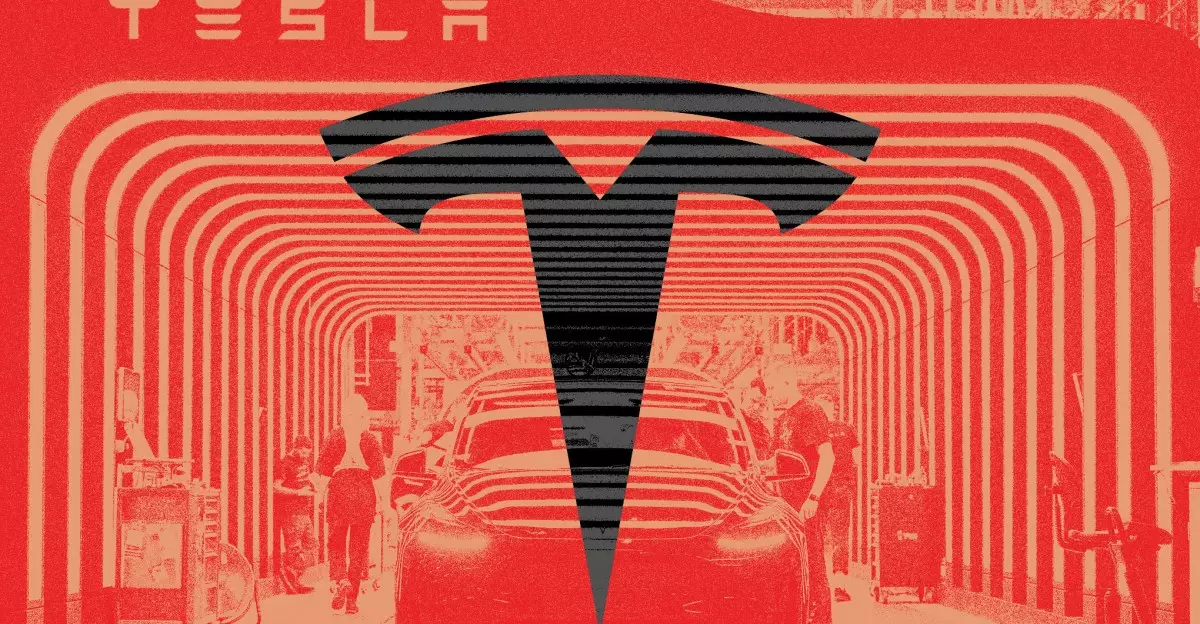Tesla has long been lauded as a pioneer in the electric vehicle (EV) sector, leading the charge for sustainable transport. However, recent sales figures reveal a troubling trend: Tesla’s sales in Europe plummeted by nearly 50 percent in April 2025 compared to the previous year. This staggering decline indicates that the company’s brand crisis is not just a passing obstacle but a significant challenge that demands urgent attention. While the overall market for battery-electric vehicles has seen a robust increase of 26.4%, capturing a notable 15.3% share in the EU market, Tesla’s shares have not followed suit.
The European Automobile Manufacturers Association reported that Tesla managed a mere 7,261 new vehicle registrations in April, showing a dramatic reduction in consumer interest at a time when the launch of the refreshed Model Y should have reignited enthusiasm for the brand. Instead of bolstering their market presence, these new releases seem to have further exposed the inadequacies of Tesla’s strategy in a rapidly evolving automotive landscape.
Market Dynamics and Stall Tactics
Tesla’s struggles can be attributed to a combination of factors that, when taken together, illustrate a failure to adapt to the dynamic competition in the EV sector. The rise in local and international competitors, particularly from established European manufacturers and aggressive Chinese rivals, has created an environment where Tesla must fight to maintain its relevance. The company appears to have underestimated how quickly and effectively these newer players could respond to consumer demand and market trends.
Moreover, the company has recently been embroiled in political controversy, particularly with Musk’s open support for controversial political figures and parties. His connections to the far-right parties may have jeopardized Tesla’s image among consumers who prioritize political stability and ethical practices in business. Musk’s decision to engage in politics, especially in a complex and diverse market like Europe, may have inadvertently turned potential buyers away, compounding the company’s woes.
Brand Reputation in Freefall
As Tesla’s sales figures dwindle, so too does the brand’s integrity. Once heralded as a top-tier company, Tesla’s reputation has taken a significant hit. Recent surveys have placed Tesla at a disappointing 95th out of 100 in brand reputation rankings—a drastic fall from its prior position among the top ten brands only four years ago. The stark contrast in public perception reflects not only the unsatisfactory sales but also a general sentiment shift in consumer loyalty.
Musk’s association with the brand may have worked to Tesla’s advantage at one time, but the current negative public opinion—evidenced by a recent Reuters/Ipsos poll indicating that 58% of respondents view Musk unfavorably—has created a disconnect between the company’s values and consumer expectations. The more he remains entangled with divisive political issues, the more Tesla seems to alienate a significant portion of the buying public.
The Future Is Uncertain
With Musk affirming that sales will rebound following factory adjustments, the reality remains that focus is scattered. His overarching interest in diverse sectors, including artificial intelligence and robotics, raises critical questions regarding Tesla’s strategic direction. The disinterest in addressing immediate sales pressures could lead to long-term ramifications for Tesla; without a cohesive strategy, the brand risks being overshadowed by more adaptable competitors.
In a promising industry flooded with potential buyers, Tesla’s retreat denotes not the failure of electric vehicles but the pressing need for the company to realign its efforts with consumer desires and market trends. As other brands forge ahead, Tesla’s challenge will be to reclaim its position not just as an industry leader but as a trusted brand that resonates deeply with today’s discerning buyers. Without this recalibration, Tesla risks losing its edge in the race toward sustainable transportation, with repercussions that could alter its future trajectory in the global automotive landscape.


Leave a Reply